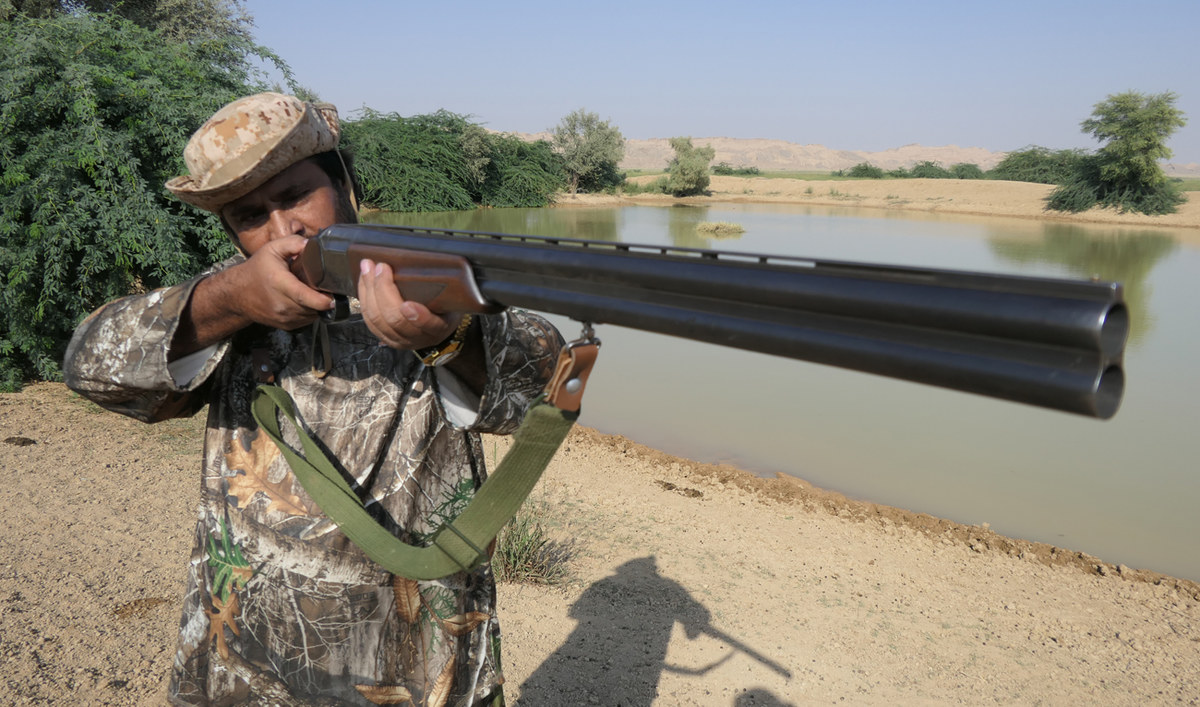QUETTA: Rehmat Gashkori realized he resembled a wildly popular Indian film star toward the end of his career in public service, when colleagues of the 62-year-old started saying he looked like Rajinikanth.
The now retired government official looked up the name on the Internet and found out his associates were referring to the Tamil actor Shivaji Rao Gaekwad, better known as Rajinikanth, one of India’s most celebrated and well-paid movie stars. So revered is the actor that fans have for decades regularly bathed pictures of him in thousands of gallons of milk, a sign of devotion usually reserved for Hindu idols. Indeed, religious rituals often accompany the release of Rajinikanth’s films and his movie release dates are anticipated in India like national holidays.
Gashkori was amused to learn about his doppelgänger but did not think too much of it in the beginning — until after his retirement from public service when he started posting hunting videos on social media.
“During my service with the deputy commissioner’s office in Sibi, I didn’t care too much about the comments about my resemblance with Rajinikanth,” he told Arab News in an interview.
“After I retired, I started using social media where many people started calling me by that name. I accepted it since I realized that God had blessed me with the looks of a great actor and human being.”

Rehmat Gashkori, a retired Pakistani government official, pictured during an interview with Arab News in Sibi, Pakistan, on October 29, 2022. (AN Photo)
Gashkori then decided to adopt the unique style of the south Indian artist, known for performing outlandish stunts that have generated legendary jokes and online memes depicting him as a superhero who can run faster than light and stop tornados and speeding trains just by exhaling.
Gashkori, laughing, said he knew he could still not act like Rajinikanth but he enjoyed the attention he received for looking like India’s biggest action-movie star.
“I remember that I once traveled to Karachi for a medical checkup. While I was visiting a shopping mall, people gathered around me in large numbers and started taking selfies. Some of them asked: ‘Are you Rajinikanth?’ I replied: ‘Yes, but I’m from Pakistan,’” he laughed.
“People from Pakistan, India, Bangladesh, Saudi Arabia, the United Arab Emirates and Nepal comment on my pictures and call me Rajnikanth.”
One of Gashkori’s former colleagues, Ghulam Haider Rind, said people across Sibi district called him Rajinikanth instead of his real name:
“During service whenever we saw him, the way he entered the office, came out of his car and went to his room, no doubt there were no actions that were not similar to Rajinikanth’s.”
Imran Harra, a 27-year-old resident of Sibi, said he had seen Gashkori at a popular district-level festival that attracts thousands.
“Rajinikanth speaks Telugu or any other [Indian] languages but he [Gashkori] communicates with us in Urdu or with the Baloch people in the Balochi language, so we have gotten the same star but our own version,” he said.

Rehmat Gashkori, a retired Pakistani government official, is on a hunting expedition in Sibi, Pakistan, on October 29, 2022. (AN Photo)
Rajnikanth’s signature moves, flicking his hair, tossing his cigarette and flipping his sunglasses, lent him a macho, rough-and-tough aura. In real life, the actor, who worked as a railway porter, a carpenter and a ticket seller on public buses before being discovered by a movie director, is widely believed to be a simple man who eschews his larger-than-life persona.
Gashkori said he felt he shared the qualities of modesty and humility with his celebrity lookalike.
“I can say that God has miraculously given me the same personality and habits since I tried my best to work for the well-being of people during my career in public service,” he said.
“Now I want to meet Rajinikanth and take a photo with him in order to show people that one is the Indian Rajinikanth and one is the Pakistani Rajinikanth.”












